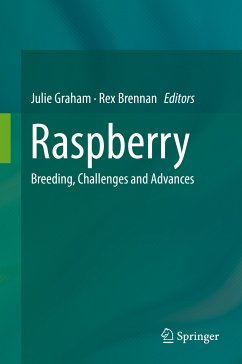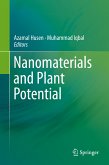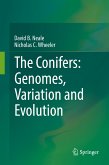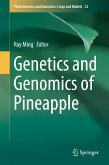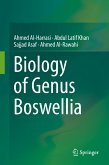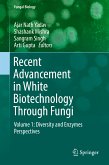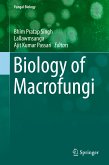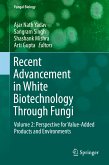Raspberry is a globally-significant soft fruit crop, with increasing interest to consumers due to its versatility and health-related constituents. In this background context, it is therefore timely to consider the present and future status of the raspberry crop, particularly with the advances in the use of molecular tools and plant phenotyping to improve our understanding of improving crop quality and fruit yields. Since the 1980s a wealth of fundamental genomics and metabolomics resources have been developed for soft fruits including linkage maps, physical maps, QTLs and expression tools. However, a number of serious and emerging challenges exist for the raspberry industry, including the plants' ability to resist major pest and disease burdens and the impact of climate change on crop production, specifically water use and water availability for soft fruit crops.
This book aims to address some of these challenges by updating the information known about this important crop, its health value, the major pest and diseases which affect raspberry and approaches for their control, and the speed and precision offered by selective breeding programs by the deployment of molecular tools and linkage maps for germplasm assessment. Understanding the genetic control of commercially and nutritionally important traits and the linkage of these characteristics to molecular markers on chromosomes is the future basis of plant breeding. We will also introduce the opportunity to fast track breeding by improving the speed of phenotypic selection by utilizing imaging sensor technologies, thereby reducing the cost of years of field assessment through developing this knowledge into markers linked to key fruit traits. The chapters of this book will span the knowledge gained from the collaborations between growers, plant breeders, plant physiologists, soil scientists, geneticists, agronomists and physicists which is essential to achieve progress in improving productivity and a sustainable industry.
Dieser Download kann aus rechtlichen Gründen nur mit Rechnungsadresse in A, B, BG, CY, CZ, D, DK, EW, E, FIN, F, GR, HR, H, IRL, I, LT, L, LR, M, NL, PL, P, R, S, SLO, SK ausgeliefert werden.

